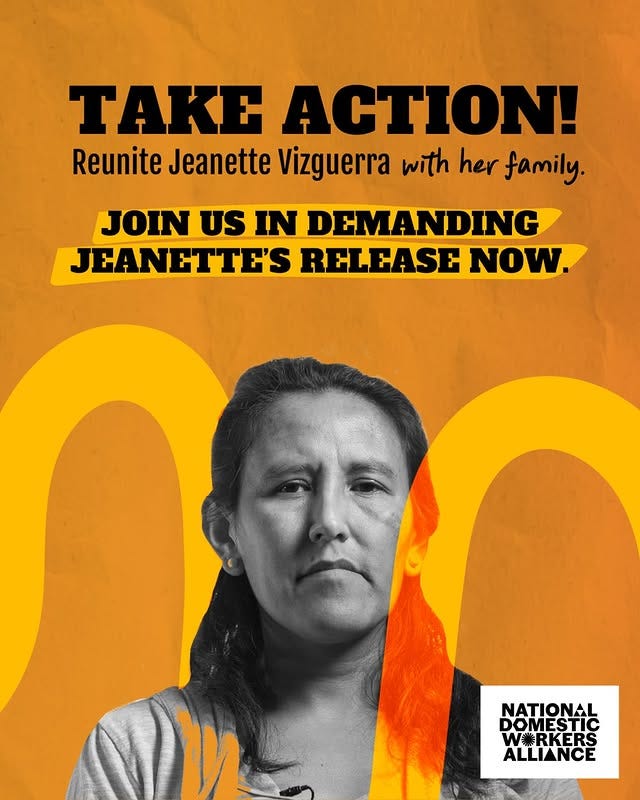
This weekend, the Trump administration dismantled one of the few immigration programs that actually worked—the CHNV parole program. It had offered over 500,000 people from Cuba, Haiti, Nicaragua, and Venezuela a safe, legal, and regulated path into the United States. Those admitted through the program passed background checks, secured U.S.-based sponsors, and spread out across 27 states—filling critical labor shortages and easing pressure on border communities.
But CHNV wasn’t just effective—it was popular. It aligned with public support for balanced, humane solutions that secure the border and provide legal pathways. According to FWD.us, 80% of CHNV parolees were already working or seeking employment, and nearly 88% expected to join the workforce in the months ahead. Only 3% reported relying on public assistance; most lived with family or sponsors. The overwhelming majority (96%) have at least a high school diploma and 87% intended to pursue citizenship.
So why end it?
“Trump isn’t just targeting undocumented immigrants—he’s coming for legal immigration too, punishing families who followed every rule and tearing down orderly, secure pathways… Instead of building on that success, Trump is ripping it away—because he doesn’t want a system that works, he wants a system he can control.”
— Beatriz Lopez, Immigration Hub
What Trump Can’t Control He Tries to Destroy
This is not about order. It’s about chaos as a strategy. Trump has never sought to fix the system. He’s working to break it entirely.
CHNV is only the latest casualty. Protections have already been stripped from nearly a million Temporary Protected Status holders. Reports suggest Ukrainians may be next. And today, CBS News revealed that the Trump administration has quietly paused green card applications for approved refugees and asylees—people who’ve already proven their eligibility and who are eligible for lawful status under the law, often after years of vetting.
This quiet freeze is more than a bureaucratic shuffle—it’s a targeted assault on legal immigration. People fleeing persecution, who followed every step of the process, are now stuck in legal limbo, unable to take the final step toward permanent status. Their rights, their futures—put on hold indefinitely, or worse, revoked entirely.
Meanwhile, the administration is turning inward, expanding surveillance and authoritarian tools with frightening speed. CBP and Border Patrol agents are conducting warrantless phone searches at airports—even targeting U.S. citizens. A French scientist was deported over private messages criticizing Trump’s policies. A Lebanese doctor with an H-1B visa was expelled for having “sympathetic” photos on WhatsApp. In each case, politics—not security—drove the decision.
According to reporting from The Verge, CBP agents are exploiting border search exceptions to the Fourth Amendment, allowing them to seize and examine phones without a warrant. Once inside, they’re combing through emails, messages, search history, and even cloud content—often without charges, hearings, or oversight. Green card holders and visa-holders report being detained, interrogated, and subjected to medical abuse, despite no serious legal violations.
Now, even immigration lawyers are being threatened. Trump’s most recent executive order calls for sanctions and disciplinary action against attorneys who bring “frivolous” litigation—a term his administration uses broadly to mean any challenge to his authority. Attorneys could lose their security clearances, be disbarred, or have their firms banned from federal contracts for simply doing their jobs.
“There is a reason that President Trump is afraid of the lawyers. He knows that lawyers are critical to upholding a society built on the rule of law and that our job is to hold elected officials accountable to the Constitution. President Trump has long found due process and fundamental fairness inconvenient to his plans for mass deportations and chaos at our borders.”
— Lindsay Toczylowski, President and CEO of Immigrant Defenders Law Center (ImmDef)
Speaking Out Is Now Grounds for Deportation
This nightmare is far from theoretical. Last week, federal agents arrested Jeanette Vizguerra—a mother, a long-time resident of Colorado, and one of TIME’s 100 Most Influential People. Her “crime”? Speaking out. Jeanette’s immigration record includes minor offenses from over a decade ago. Her real offense in the eyes of this administration? Leading advocacy efforts and holding power accountable. Trump’s goal isn’t enforcement. It’s erasure. To silence those who dissent. To intimidate anyone who defends them. To punish those who believe in the rule of law.
And the public knows it. Contrary to Trump’s narrative, immigration was not a top driver of his 2024 victory. According to post-election battleground polling by BlueLabs and Immigration Hub, immigration ranked behind the economy, inflation, and democracy. Among those who did prioritize immigration, 85% were already in Trump’s base. Meanwhile, 64% of voters preferred a balanced approach—border security and a path to citizenship. Even a quarter of Trump voters preferred pathways over mass deportation.
But those preferences were drowned out. Republicans spent over $570 million on anti-immigrant broadcast ads in 2024—five times more than Democrats spent talking about balanced, humane immigration solutions. The result? Silence was filled with fear.
That fear is now being used to justify a system with no safeguards. Legal migration is being dismantled. Judicial orders are being ignored. Free speech is being punished. And the line between who is “deportable” and who is “American” gets blurrier every day.
Programs like CHNV offered a rare glimpse of what works—compassionate, effective, orderly immigration that serves both families and national interests. But Trump doesn’t want programs that work. He wants a system that obeys. And the longer we allow this campaign of erasure and escalation to continue unchallenged, the harder it will be to repair what’s lost. This isn’t just about immigration anymore. It’s about the future of our democracy—and who gets to be part of it.






